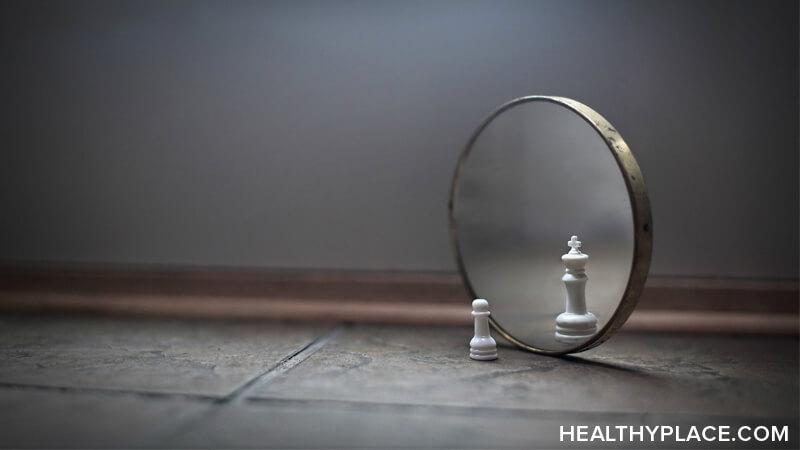Self-Esteem Affects Mental Health: How Can You Improve Both?

Self-esteem affects mental health and low self-esteem often results from having a mental illness. I struggle with depression and anxiety, and I'm constantly battling negative thoughts that say I'm not good enough. I judge myself and compare myself to others. I'm afraid to put myself out there.
My lack of self-esteem affects my mental health negatively. This may seem like an obvious statement, but it's not always easy to look at your mental health logically when you're struggling with low self-esteem.
For a long time, I never attributed my lack of confidence to low self-esteem. I just thought I wasn't good enough. The negative thoughts would tell me I was worthless. It felt like the truth. I believed them for a long time. When someone finally pointed out to me that I had low self-esteem, I realized that I needed to evaluate my habits and work on becoming more confident and seeing value in myself.
Self-Esteem Can Affect Mental Health Positively By Changing Habits
The first step to address how my low self-esteem affected my mental health was to identify the bad habits. I saw that I struggled with being confident in my decisions, and I was constantly apologizing for unnecessary things. I made a commitment to work on changing each habit and raise my self-esteem.
How I Feel More Confident in My Decisions
Every time I made a decision, I would rely on other people to tell me if I was doing the right thing. If anyone questioned why I chose something, I would immediately double back and ask that person what he or she thought I should do. I was too scared to defend my decisions. It could be something small, like what restaurant to choose for dinner, or it could be something bigger, like what major I should pick for college.
It's beneficial to get others' opinions. But in the end, it's my life, and I should be confident in the choices I make. I'm working on breaking the habit by ensuring that I clearly understand my own reason for deciding something.
For instance, when I choose a restaurant, I'll tell myself out loud why I want to eat there. By being firm with myself, I can practice asserting myself to others.
When I chose a major, I wrote down a summary of why I was going to pursue a certain degree. By recording my rationale and seeing it on paper, it helped finalize the decision in my mind. If anyone questions my choice, I'm prepared to give them a good reason.
How I Stop Constantly Apologizing
I was always apologizing. If someone bumped into me, I said "sorry." It was an automatic response. I didn't feel confident in myself, so I accepted the blame, even if it wasn't my fault. I justified it by saying I was just trying to be a nice person. While the intention was good, it was hurting my mental health. Every time I said "sorry" for something unnecessary, it made me feel bad about myself.
Of course, it's great to be nice to people. But I needed to stop thinking of myself as secondary to others.
I asked my friends and family to stop me if I said "sorry" for something that didn't warrant an apology. When they were calling it to my attention, I was shocked at how many times a day I said it. I was able to start catching myself more frequently. Since then, it's been getting much better.
Improving Your Self-Esteem Affects Mental Health Positively
As I've worked on breaking these bad habits, I've seen a significant improvement in my mental health. I've gained confidence in all areas of my life and I don't feel that I need others' permission to make choices. I don't have the urge to apologize as much. I'm able to see myself as a valuable person.
I'm still working on raising my self-esteem. There are times where I lose confidence or apologize for something unnecessarily. It's a work in progress and I'm constantly looking for new ways to break bad habits and establish good habits.
Have you noticed that you struggle with low self-esteem? What strategies help you build confidence? I would love to hear your thoughts.
APA Reference
Capper, J.
(2018, August 22). Self-Esteem Affects Mental Health: How Can You Improve Both?, HealthyPlace. Retrieved
on 2025, December 13 from https://www.healthyplace.com/blogs/mentalhealthforthedigitalgeneration/2018/8/self-esteem-affects-mental-health-how-can-you-improve-both